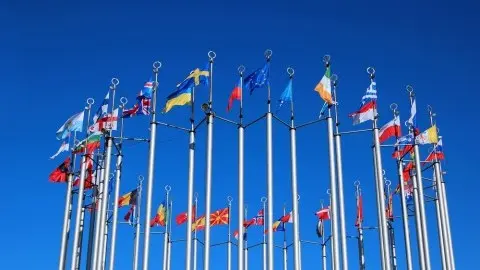Indonesian and Philippines central banks can afford to hit the pause button
Bank Indonesia (BI) and Bangko Sentral ng Pilipinas (BSP) can keep the powder dry as pressure on emerging markets eases in October
Relative calm affords some breathing room
Two of the busier Asian central banks this year have been the Bank Indonesia (BI) and the Bangko Sentral ng Pilipinas (BSP), both having hiked their policy rates by a cumulative 150 basis points in 2018. BI has been aggressive in tightening monetary policy to provide financial market stability and to ensure “that the country’s financial markets remained attractive to investors”, according to Governor Warjiyo (pictured). Meanwhile, the BSP has unleashed a flurry of rate hikes, with the last two policy actions being more forceful 50bp rate adjustments, as domestic inflation moved well-past their 2-4% target range.
With risk sentiment improving somewhat in recent sessions despite elevated levels for oil and Treasury yields, we’ve witnessed both the Indonesian Rupiah (IDR) and Philippine Peso (PHP) strengthened over the past week. Positive economic data has helped improve sentiments towards the two currencies. Indonesia’s trade balance swung to surplus in September from deficit in the previous month, while the government budget also improved to produce a smaller than target fiscal deficit this year. And in the Philippines, inflation slipped below market expectations in September. Given these developments, the respective central banks are under less pressure to hike rates further, at least for their upcoming policy meetings, while still leaving the door open for respective 25 basis point rate hikes by the end of the year.
Dovish undertones from BI and BSP
The BI’s governing board meets on 23 October with the latest comments from Governor Warjio pointing to improved confidence in the currency on as he believes the “supply and demand in the forex market run quite well and the IDR rate shows stable movement”. With economic data helping to boost sentiment and with the IDR relatively stable, the BI may afford some breathing space to hold off the policy tightening for a while.
The BSP’s next policy meeting is scheduled in mid-November. There has been a growing chorus of Philippine monetary policy officials singing dovish tunes of late. A voting member, Medalla, indicated that a pause in rate hikes was plausible given that the BSP had “done a bit already and that 150bp was very significant”. Another voting member, Tolentino, appears to share the same opinion, suggesting that they could afford to pause if the numbers (data) prove helpful. Utilising a mix of hawkish bias with dovish undertones, the BSP has remained consistent in the past few weeks to signal both readiness to hike, though with an adherence to their “data dependent” ways. Financial Secretary Dominguez noted that “if more aggressive actions are required, (BSP) will take it. If not, (BSP) will ease off”, while BSP Officer-In-Charge Amador has pledged to remain “watchful for all developments so that systematic policy responses can be considered”.
The EM space has faced a rocky September but for most of October pressure appears to have abated to some extent, affording central banks some breathing room to allow their policy initiatives so far to bear fruit and economies to regain their growth momentum while keeping the powder dry for possible rate hikes (25 basis points) to close out 2018.
This publication has been prepared by ING solely for information purposes irrespective of a particular user's means, financial situation or investment objectives. The information does not constitute investment recommendation, and nor is it investment, legal or tax advice or an offer or solicitation to purchase or sell any financial instrument. Read more
Download
Download article
19 October 2018
Good MornING Asia - 22 October 2018 This bundle contains 3 Articles
